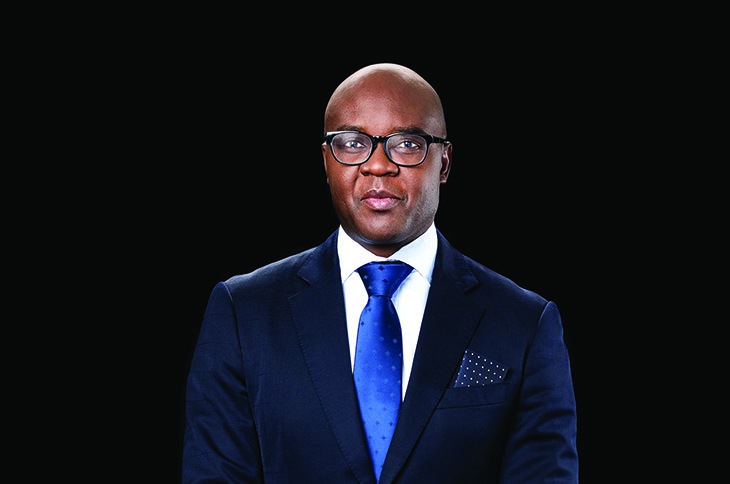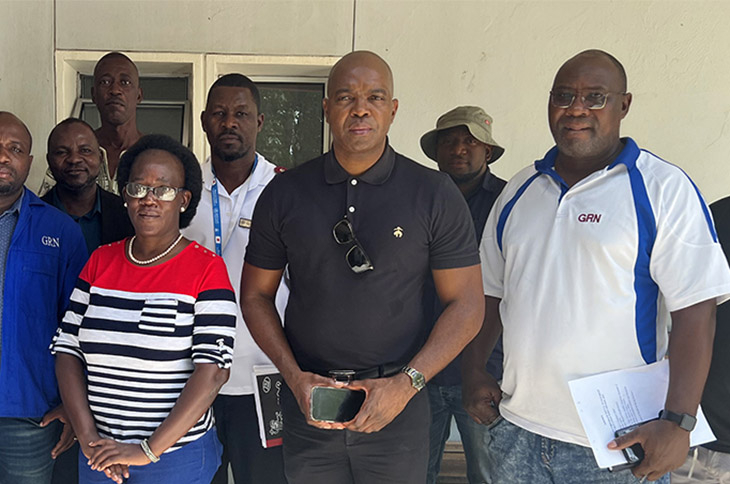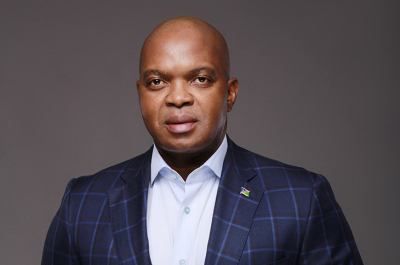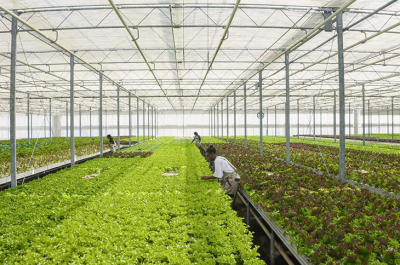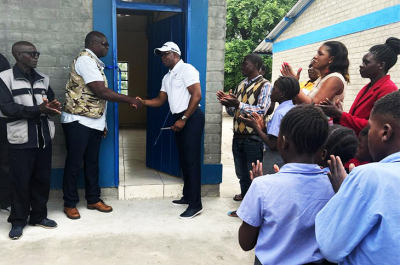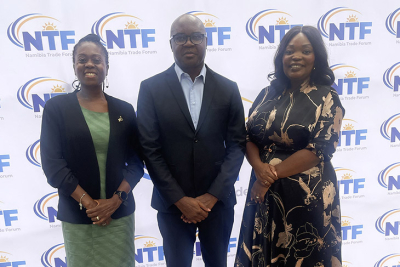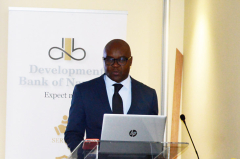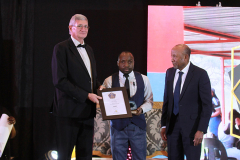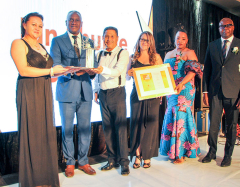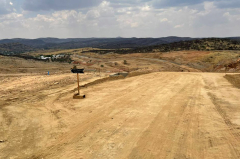
Business (80)
KfW-backed recovery loans, 12 months interest free
Business Recovery Loans have been further subsidized in response to calls for access to affordable credit and will now include a 12-month interest-free period following disbursement of loans.
These loans are supported by KfW, the German Development Bank, and are distinct from the Bank of Namibia SME Economic Recovery Loan Scheme. DBN is expected to make a statement on its participation in the Bank of Namibia SME Economic Recovery Loan Scheme in the near future.
The Business Recovery Loans currently have a term of up to 32-months and a fixed interest rate of 5.925%. Effectively, this means that Recovery Loan borrowers will only pay interest for 20 months. The 12-month portion of interest will NOT be recapitalized for payment in the final 20-month period of the loan.
The interest subsidy does not subsidize the capital amount of loans, so borrowers will be required to pay the capital amount over 32 months, unless a grace period is granted by DBN, depending on merit of the project financed.
The Bank launched its Business Recovery Loans Facility in 2022 to assist eligible non-agricultural businesses to overcome financial challenges caused by adverse macro-economic conditions over the past years. It succeeds the Covid-19 facility that was launched in 2021.
The recovery facility is enabled by German Development Cooperation and its financial cooperation entity KfW. The facility is part of a series of measures initiated by the Ministry of Finance to help businesses overcome the financial challenges caused by the prevailing adverse macro-economic conditions.
Martin Inkumbi, DBN CEO, says on launch of the Business Recovery Loans in mid-2022, the loans were intended for acquisition of plant and equipment, as well as working capital and / or other short-term finances to strengthen enterprises. He also points to diversification and expansion so that businesses can become more resilient to future economic shocks. Finally, he says that the business and consumer environments have evolved and adapted during Covid-19, and the Business Recovery Loans can be used to develop and launch sustainable, innovative new products and services.
Inkumbi says that the shorter duration of the loan places the onus on existing enterprises to select uses that can be quickly implemented with a rapid, positive impact on business outcomes and revenues.
Inkumbi stresses that the loan will not apply to start-ups. This is a loan specifically geared to boost existing enterprises that have been affected by the difficult economic environment. Start-ups, he concludes, should apply for normal SME finance or larger amounts of finance from DBN’s Investment Department.
Find out more about the KfW-backed Business Recovery loans, here...
Bank donates N$1 million to the future
Development Bank of Namibia (DBN) Head of Marketing and Corporate Communication, Jerome Mutumba, has announced a donation of N$1 million to strengthen maternity facilities with construction of a maternity ward at Rupara Health Centre in Kavango West Region.
The region currently does not have a maternity ward. One room is allocated to expectant mothers, and when that room is filled, mothers give birth in the general ward, or are referred to Kavango East. There is an average of 22 births at Rupara Health Centre, monthly.
Speaking about the donation, Mutumba described it as an opportunity to materially give to the future through better health for mothers and their infants, He explained that the combination of pre-natal and post-natal care would have the effect of reducing infant mortality.
He also mentioned that the facility would have an impact on the mental wellbeing of mothers. Firstly, he said, the additional facilities would reduce the stress of giving birth in the general ward. Secondly, he said, there would be a reduction in referrals to Kavango East, so mothers would be able to have the support of their families.
Mutumba went on to challenge the private sector and parastatals to participate in projects with a high degree of development impact. The well of need is deep, he said, but by joining hands in the spirit of Harambee, all can make a material difference.
During the same set of regional visits, Mutumba gave a motivational speech to the learners of Oshikunde Combined School in the Omaheke Region, and pledged an award of N$20,000 to the best performing learner in Grade 12.
Innovative finance a must for economic growth
As the economy evolves and as new needs become apparent, it is vital that enterprise and infrastructure finance evolves as well. If not for this evolution, the economy will begin to lag, in terms of providing an enabling environment for economic activity, solving issues, and in terms of national competitiveness on the regional and global stages.
The ability of finance to adapt to the changing Namibian economy and enterprise ecosystem is hampered by two factors.
Firstly, commercial sources of finance are risk avoidant. Their duty to their investors is to deliver consistent returns, and to protect their customers in delivering fixed interest rates on savings and borrowing. All capital advanced or deployed has to be in a measured risk environment and adhere to the regulatory measures of central monetary policy.
Secondly, although the funds subsector is developing, there is limited space for venture capital, in which high returns to successful enterprise investments can offset losses and low returns on unsuccessful enterprises. This biases venture capital to smaller investments with lower risks.
As a result, the Development Bank of Namibia has adopted the role of pioneering avenues of finance and absorbing risk on innovative forms of finance for enterprise and infrastructure.
Although the Development Bank of Namibia operates competitively it takes pride in pioneering financing models that are adopted by other sources of commercial finance.
The Bank accepts that its models will be replicated in terms of its mandate, to foster economic and social wellbeing in Namibia. Through its models, the bank effectively mitigates the risk of finance within the sector or financing space and leads by example.
Notable examples of this include finance for privately owned renewable energy facilities as well as contract or tender-based finance, the latter in terms of which contracts are financed on the basis of revenue streams from the contract.
However, the Bank takes a cooperative approach from time to time. In the past it has provided stimulus for SME finance in the form tranches of capital to two commercial banks to foster on-lending to SMEs. The Bank also administers the Credit Guarantee Scheme (CGS) which is offered by First National Bank and Standard Bank. The CGS reduces the collateral requirement by 60% for qualifying SMEs.
However, the Bank is a leader in the enterprise financing industry in other respects that extend beyond pure financing. The Bank was the first to package mentoring and coaching with finance to enhance sustainability of SMEs, and the first to implement environmental and social management in its financing decisions.
In terms of addressing current economic issues, the Bank has pioneered land servicing in PPP models, skills-based finance for young artisans and professionals and is actively promoting agri-industry to support primary agriculture and food security. The latter takes the form of manufacturing inputs and services for agriculture, agricultural infrastructure and processing of agricultural produce.
The Bank’s track record in the field of ICT and transformation includes finance for Nampost’s biometric system that substantially expanded access to Banking, finance for Namibia’s second mobile provider, Cell One, as well as finance for internet service providers and ICT companies.
Looking ahead, the Bank is actively researching a financial product to promote access to finance and inclusive economic participation for women and young entrepreneurs.
The Bank’s success in innovating finance is rooted in its deep understanding of the sectors and enterprises that form its ecosystems. Aside from its own substantial body of experience, this is also embodied in its Project Preparation Fund.
Taken together, the track record of the Development Bank in innovating, as well as its experience and its role as a brains trust indicates that the future of the Namibian economy and the financing sector is in good hands.
Development Bank signs MoU with agribank
The Agricultural Bank of Namibia (Agribank) and the Development Bank of Namibia (DBN) have signed a memorandum of understanding (MoU) to cooperate and co-finance controlled environment agriculture activities in Namibia. The signing took place on 01 December 2022, in Windhoek.
The MoU recognises the joint interests of the two banks in promoting agriculture as a route to economic activity and food security. Agribank promotes agriculture through financing the entire agriculture value chain and related activities. DBN provides finance for agricultural infrastructure, manufacturing of agricultural inputs and provision of agricultural services, as well as enterprises that process agricultural produce and manufacture food.
Controlled environment agriculture finance envisages provision of land and facilities that enable consistent productivity with infrastructure that reduces the impact of drought and variable weather. This may include hydroponics, vegetable tunnels and green schemes. It also encompasses aquaculture.
In terms of the MoU, the banks will also identify parallel opportunities of mutual interest. For instance, if DBN receives a request for direct financing for agriculture it will refer the request to Agribank. Agribank may similarly refer requests for financing for agri-processing facilities to DBN. Both banks may collaborate on finance for controlled environment agriculture.
At the signing ceremony, Agribank’s Chief Executive Officer, Dr Raphael Karuaihe, said collaboration with other institutions to pool financing resources speaks directly to the Bank’s strategic initiative of targeting high impact projects to transform our economy and the agriculture sector, in particular.
DBN CEO Martin Inkumbi, stated that DBN has identified controlled environment agriculture to focus on, as this industry inherently mitigates many of the risks usually associated with agriculture, and with limited background in agriculture, it greatly reduces the risk DBN has to mitigate and manage in the agricultural space.
The Memorandum of Understanding is valid for two years from the date of signature, with the option for renewal at the end of the term.
N$500,000 donation for Zambezi classrooms
Development Bank of Namibia (DBN) has donated N$500,000 to construct two new classrooms for Maunga School in Zambezi. Maunga School caters to learners up to Grade 4.
Speaking at the handover and inauguration of the classrooms, DBN Head of Marketing and Corporate Communication, Jerome Mutumba, said rural development is central to the government and government institutions must play a part to develop the rural part of the country.
He pointed out that DBN encourages applications for enterprise in rural areas, and that although the Bank does not engage in finance for direct agriculture, it may finance agri-enterprise as well as infrastructure for controlled environment agriculture.
On the topic of the Bank’s interest in finance for education, and the donations it makes to the sector, Mutumba said that education is one of the most significant resources for the future. Suitable facilities are a contributor to the resource as they provide an environment in which young minds can focus on learning without distraction and discomfort.
Speaking at the handover, area induna Pex Isiah asked for additional assistance to build additional classrooms, and electrify new classrooms as well as teachers’ dwellings.
Maunga School Principal Susan Museke noted that the new classrooms will improve learner attendance but also indicated that school facilities still include tents and mud structures that leave room for further development of the school’s facilities.
Mutumba concluded by challenging other institutions to make donations that improve facilities at the school. By focusing resources at a single point, socio-economic needs can be satisfied faster and with greater focus before moving to the next project.
DBN allocates a portion of its revenue to corporate social investment (CSI) in initiatives that cannot sustain commercial finance. In addition to education, the Bank also makes investments in skills development, community safety and health, poverty alleviation, enterprise development, and environmental and biodiversity management.
Memo of understanding with Namibia Trade Federation
NTF and DBN launched an MoU in terms of which NTF will assist export-oriented enterprises and start-ups to apply for DBN finance. The MoU will also cover enterprises engaged in internal trade.
Delivering the keynote address at the launch, Deputy Director for International Trade and Commerce in the Ministry of Industrialisation, Trade and SME Development, Ndiitah Nghipondoka-Robiati, said at a time when Namibia and the Africa continent are working towards greater integration this MoU, aims to improve and strengthen the SMEs and allows Namibia to accelerate its industrialisation agenda and diversify its export market.
Robiati reiterated that SMEs are the backbone of most economies and are a key source of economic growth dynamism and flexibility, so SME’s must engage in programs that foster entrepreneurial thinking and enhance entrepreneurship.
Robiati concluded that, collaboration such as the NTF-DBN MoU, and commitment and consistency are the three factors which will enable SME’s to become highly independent and increase their survival rate.
Stacey Pinto, CEO of NTF said that the collaboration is geared to strengthen applications for DBN by SMEs. NTF, she said, should be a first stop for SMEs intending to export goods or services to AfCTFA countries.
Among advice to strengthen DNB applications that NTF will provide, Pinto highlighted certain standards that will allow SMEs to compete in AfCFTA, elements such as packaging, labelling, barcodes, production capacity, and quality assurance. These elements, she emphasized, are the basis for SMEs to invest in products and services.
DBN CEO Martin Inkumbi highlighted the Namibian paradox of a highly developed enterprise financing and support ecosystem yet inefficient enterprise formation. This inefficiency is characterized by substandard performance of new and existing enterprises, as well as their failure.
According to Inkumbi the inefficiency is due to lack of entrepreneurial skills, limited demand for local goods and services, and lack of coordination in the enterprise financing and support ecosystem.
The MoU, he said, should be a model for coordination with the ability to assist finance for manufacturing, food processing, agriculture infrastructure with the goal of local and AfCFTA trade.
He cautioned that although AfCFTA represents a potential boom for Namibian exporters, it also opens Namibia to imports, and so it is important for Namibian SMEs and manufacturers to be competitive in both local and export markets.
Inkumbi concluded by expressing hope that the partnership would be energetic and effective.
Business Rescue Programme launched
The Bank has announced the approval and implementation of a Business Rescue Programme for qualifying businesses financed by the Bank as a possible alternative to liquidation. The programme takes the form of partial conversion of debt into various types of preference shares to be held by the Bank in the enterprise and the deployment of independent business managers to such entities to render technical and management advisory services.
Speaking about the programme DBN CEO, Martin Inkumbi, said that the combination of prevalent unfavourable economic fundamentals have left many businesses at the point where they are barely able to operate. The Bank has a duty to recover its capital so that it can make further loans to other borrowers. However, the Bank responsibly also strives to strike a balance to preserve the envisaged development impact.
Inkumbi illustrated this point by saying that the Bank gives regards to employment opportunities created, income for owners, preservation of owners’ capital and assets , contributions to local, regional and national economies, and continued economic growth as reasons to attempt to preserve businesses. The Bank, he stressed, does everything it reasonably can to preserve businesses that it has financed and, where possible, creates a win-win situation for the borrower and the Bank.
Explaining the programme in detail, Inkumbi said DBN will in the next few weeks appoint independent business rescue advisors through a transparent procurement process. Once an advisor is appointed to carry out an assessment of a distressed business, the advisor will make recommendations on the turnabout strategy. The turnabout strategy will identify changes that need to be made to the operation of the business, its governance and / or its capital structure.
If the capital structure is not appropriate, the Bank could consider converting part of the debt to the Bank into alternative patient financing instruments such as convertible preference shares.
Inkumbi went on to say that preference shares give the Bank the ability to relax its repayment requirements for a portion of the loan in anticipation of growth of value and yields on the shares. Owners, he said, would always have the first right to repurchase the shares or, with the agreement of DBN, to arrange for the sale of the shares to third parties.
During the period which the Bank holds preference shares, the business will be contractually obliged to meet a number of milestones identified by the advisor and agreed between the business and DBN.
Once the business is on its feet again, DBN will exit the preference share arrangement, preferably by selling its preference shares back to the original owners.
The first task of the business turnaround advisor, Inkumbi elaborated, will be to ascertain if the business can be rescued. If not, the Bank will have to begin steps to recover its loans through the normal liquidation process. If the business can be rescued, the advisor will make recommendations on management, capital structure and governance which the enterprise will be contractually obliged to implement. In some cases, control of the management of the business could be transferred to mutually agreed business managers with expertise to help manage the enterprise out of a loss making position.
Where changes to the business’s capital structure (i.e. the debt to equity ratio) are required, the advisor will be able to either assist with bringing equity investors on board or to recommend the conversion of DBNs debt to preference shares. Through this conversion, DBN will hold preference shares in the business for a limited period only. The aim is always for the Bank to exit and transfer full ownership and control of the business to its owners or new investors or a combination of both.
Asked about resistance to the advisors, Inkumbi said the programme is voluntary. There will be consultation between the Bank and the distressed business owners. Where a distressed business owner is not willing to accepted terms and conditions of a rescue program, they can always opt to repay the Bank’s loan or alternatively face liquidation.
Inkumbi stated that the terms of reference for independent advisory services have been drawn up, and they emphasize high degrees of experience and skills. The Bank believes that some businesses fail due to poor management and lack of financial control.
On the topic of eligibility, Inkumbi said that not all businesses in distress would qualify or meet the criteria of the business rescue program. There must be some level of business activities happening and revenue generation. Ideally such a business must be in a position to at least partially meet its loan repayment obligation to the Bank. The Bank will not convert full debt into a preference share instrument. The owners must also be committed and willing to make further capital investment and meet the Bank halfway.
Although this is a rescue programme, it is an opportunity for businesses to make strides towards a sustainable future, Inkumbi concluded.
2022 Good Business Awards
The Development Bank of Namibia (DBN) hosted its prestigious 2022 Good Business Awards in Windhoek on the night of 3 November 2022. Officiated over by the Vice President, His Excellency, Dr. Nangolo Mbumba, the event was attended by leading lights in Namibia’s private sector.
The event delivered wins for land servicing and education, with strong showings for tourism, manufacturing and transport and logistics.
Winner of the SME category, Zealous Tutorial Centre provides tutorial services to grade 10 and 12 learners in Rundu, enhancing secondary school educational outcomes. Finalist Infinity Logistics operates in the transport and logistics sector, one of the sectors identified in NDP5 as being critical to Namibia’s economic sustainability and development. Finalist Blue-Chem Investments manufactures cleaning products in Walvis Bay. Manufacturing has been identified as an important sector for Namibia’s future economic activity.
Winner of the large enterprise category, Otweya Land Developers serviced land for the large neighbourhood development at Rocky Crest Extension 4 in Windhoek. Lack of serviced land is a barrier to economic activity, socio-economic wellbeing and formation of capital.
Finalist San Kaross Lifestyle Safari developed San Kaross Lodge at Daan Viljoen, near Windhoek. Tourism and hospitality operations such as San Kaross are major emplores and earners of foreign currency. Finalist and specialist educator International University of Management (IUM), prepares and equips managers for roles in Namibia’s public and private sectors.
In his welcoming remarks, Chairperson of the DBN Board, Sarel van Zyl said through its finance of sustainable enterprises, the Bank seeks to achieve a high degree of economic activity and resulting development impact, as the economy recovers, and in future as the economy bears fruits.
He noted that the first Good Business Awards took into consideration job creation, local sourcing, sustainable and innovative use of resources, sound administration of the enterprise and good governance. Those judging criteria for these awards remains the same, and the finalists and winners epitomise that.
In his keynote address, Dr. Mbumba said his message to the finalists and winners is one of encouragement and their presence is an indication of excellence. He described them as agents of development and highly valuable components in the enterprise ecosystem.
Describing the relevance of the Awards, DBN CEO Martin Inkumbi said good business consists of enterprises and initiatives that are appropriate to the Namibian economy, that satisfy demand in the market and that are well administered. Good businesses are also those that can adapt to changing circumstances and economic shocks, as we have seen in the last two years. Good businesses also use their resources to accumulate capital either to grow, to evolve or to buffer themselves against economic shocks.
He said the concept of good business is ideal however, it also challenges Namibia. Namibia has traditionally been a tied economy dependent on regional linkages. It is influenced by neighbouring economies through the economies of scale that those economies achieve and subsequent imports that tend to dominate Namibia. It is also influenced by regional economic mechanisms such as SACU and the SADC.
The counters to this, he continued, are firstly to develop greater local self-sufficiency, and secondly to develop greater export capacity. Implicit to this is the need for sustainable enterprises that will endure through the years, providing consistent supply of high-quality goods and services through the years.
Good business, he pointed out, requires development of entrepreneurial culture, at the level of the enterprise as well as at a national level. The Good Business Awards showcase the best enterprises financed by the Bank. They are sustainable, they satisfy needs in the market and the economy, and they are administered for long-term success. However, the finalists and winners also set examples for other businesses. By examining their models and practices, other businesses can learn what it takes to succeed.
The Bank also learns from its finalists and winners. They become a standard against which the Bank can gauge its borrowers, both in the application phase and in the support that it can offer to its existing borrowers, he concluded.
Development Bank to resume Good Business Awards
Development Bank of Namibia (DBN) Executive of Marketing and Corporate Communication, Jerome Mutumba, has announced the resumption of the Good Business Awards on 3 November 2022, with finalists and winners to be announced at the gala dinner on the same night at Safari Hotel.
The high profile Awards were last held in 2019, were suspended for two years due to Covid-19.
Mutumba said this year’s winners will come from the tourism and hospitality sector, private education, land servicing, manufacturing and the transport and logistics sector.
Talking about the Awards, Mutumba said that they have a twofold purpose. Firstly, they highlight enterprises that have an exemplary development impact combined with excellent administrative practices that contribute to viability and longevity of the enterprise. Secondly, they showcase the contribution that the Bank, through its finance, makes towards development and economic activity in Namibia.
As befits an event of this magnitude, he said, the keynote speaker at this years’ event will be Dr. Nangolo Mbumba, Vice President of the Republic of Namibia, who will confer the awards.
The finalists and winners were determined by a panel consisting of independent judges and experts in their fields from among Development Bank employees.
In previous years, the Bank also conferred an annual Innovation Award. Although the Award will not be conferred in 2022, Mutumba said he was confident that the Innovation Award would resume in 2023.
Talking about the quality of finalists and winners, Mutumba said that the standard is very high. Although there can only be one winner in each if the categories, all of the finalists are exceptional, and represent a win for the Namibian economy and the Bank, he concluded.
Development begins from the ground up at Auasblick Extension 1
Speaking at the launch of Auasblick Extension 1, a public private partnership (PPP) between Sinco Investments and the City of Windhoek, Development Bank of Namibia CEO Martin Inkumbi emphasized the importance of serviced land as a vital pillar for economic growth and activity.
Inkumbi said commercial lenders mainly focus on financing top structures, which consists of housing units which fall either in the of affordable or higher-end segments of the market. There is often a shortage of lenders willing to finance the development of bulk land infrastructure, and this is the gap DBN aims to fill.
Lack of serviced land, he said, hampers progression of home ownership and socio-economic wellbeing, as well as capital formation in families. The presence of serviced land is not just an asset accounted for in the present. It represents the promise of prosperity and economic activity for the future.
Firstly, Inkumbi explained, serviced land and houses can be used as collateral for businesses that are financed. Lack of sufficient collateral is an ongoing challenge in development of the Namibian enterprise ecosystem. By making serviced land available, the entire private sector economy is enhanced.
Secondly, land and houses have value that can be transferred between generations, as intra-generational transfer of wealth between living parents and children, or through inheritances as inter-generational transfer of wealth.
Thirdly, Inkumbi said, serviced land appreciates in value. This appreciation of value can be redeemed through resale.
Talking about the importance of serviced land for the capital, he said Windhoek, which is experiencing a shortage of serviced land and land expected to become part of the wealth of families in all income brackets. This shortage impacts the potential ability of the City to become a driver of economic activity.
Inkumbi went on to explain that all income brackets benefit from land ownership, proportionately to the value of the land. Thus, he explained, smaller parcels of land with a lower municipal value can be used as collateral in financing arrangements for smaller enterprises, while land with a higher value can be used as collateral for larger enterprises. The need for serviced land in higher income brackets is an often overlooked facet of enterprise financing.
A healthy economic ecosystem, he said, consists of an optimal number of small, medium and large businesses with linkages. In this way small enterprises become off-takers of large enterprise goods and services, and vice versa.
He pointed out that Development Bank plays an active role in finance and stimulus for land servicing. In this case, the Bank has approved finance of N$76,855 million for bulk infrastructure for phase one of the Auasblick extension, consisting of 281 erven.
In addition to delivering serviced land on which residential properties will be erected, there is a definite, immediate development impact. During the construction phase employment is created, construction enterprises have the opportunity to earn income and the building supply and manufacturing sectors have opportunities to benefit.
Inkumbi concluded by saying that the Bank is ready and willing to finance land development projects across Namibia, either by financing private developers, local authorities and or through the Bank’s PPP model and its win-win proposition and invited initiators of land development projects to make contact with the Bank.




